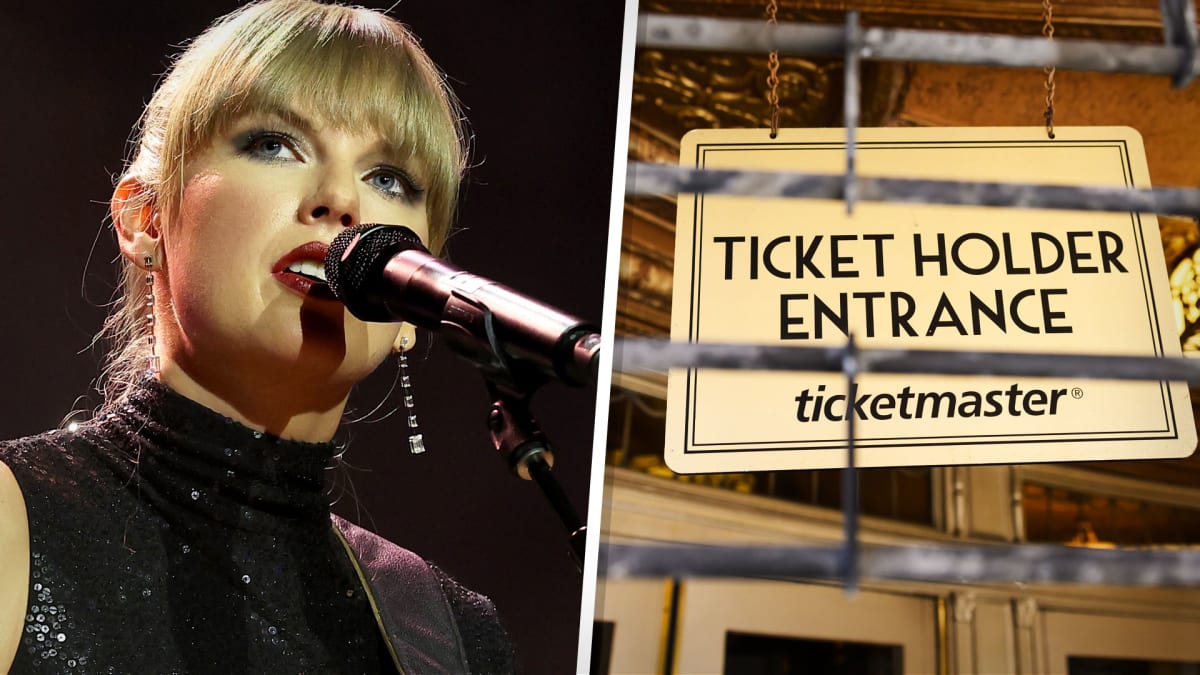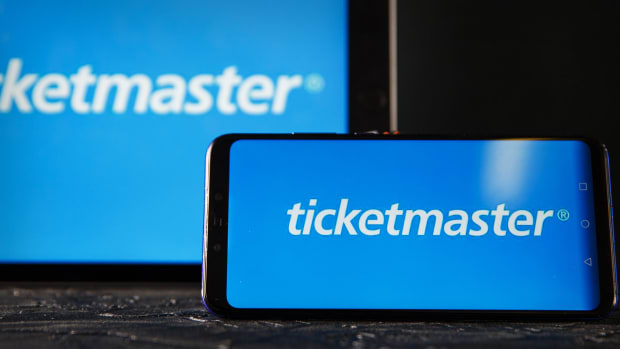
Last month, the internet was flooded with the tears of Taylor Swift fans who had hoped to grab a ticket for next year's Eras tour -- only to find themselves stuck in a virtual line while scalpers and bots scooped up many of the tickets.
Pre-sale tickets for Swift's 52-date stadium tour, her first in five years, later hit second-party reseller websites like Stubhub for eyeball-popping prices; with seats for the New Jersey's MetLife Stadium show going for as high as $21,600. The pre-sale was for verified fans of Swift's, with prices starting at $49, but the verification system did not seem to deter scalpers.
Swift, none-too-pleased with the situation, later issued a statement via Instagram, saying "I'm not going to make excuses for anyone because we asked them, multiple times, if they could handle this kind of demand and we were assured they could."
Ticketmaster canceled the ticket sales for the general public and issued a statement of its own, saying "Historically, we've been able to manage huge volume coming into the site to shop for tickets.
However, this time the staggering number of bot attacks as well as fans who didn't have codes drove unprecedented traffic on our site, resulting in 3.5 billion total system requests -- 4x our previous peak," Ticketmaster continued.
Ticketmaster Faces New Levels of Scrutiny
People have complained about Ticketmaster since it started in 1976, as the company's many additional service fees can sometimes be up to 78% of the total cost of the ticket.
In 2009, Ticketmaster completed its merger with the entertainment promotions company Live Nation; collectively, they have exclusive partnerships with the majority of America's arenas and large music halls. But these exclusive arrangements, and the fact that Ticketmaster doesn't really have any large-scale competition, have led to accusations that the company holds a monopoly within the live music industry.
Additionally, Ticketmaster executives have, like many business leaders of late, been accused of favoring stock buybacks instead of investing in the company's employees and infrastructure, thus leaving it vulnerable to the bots and malware used by ticket scalpers.

Shutterstock
Lawmakers are Calling For an Investigation Into Ticketmaster and Live Nation
In the aftermath of the Swift pre-sale fiasco, the best-case scenario is that a widely disliked company has yet another embarrassing public relations situation.
But the worst-case scenario could, potentially, be much worse for Ticketmaster.
Lawmakers such as Rep. Alexandria Ocasio-Cortez (D-N.Y.) -- who said the 2009 Live Nation merger should never have happened -- Rep. Katie Porter (D-Calif.), Rep. David N. Cicilline (D-R.I.) and New Jersey Rep. Bill Pascrell, Jr. (D-N.J.) called for an investigation into Ticketmaster and Live Nation.
Sen. Amy Klobuchar (D-Minn.) and Sen. Mike Lee (R-Utah) have announced a U.S. Senate antitrust panel will hold a hearing on the lack of competition in the concert industry, and Justice Department's antitrust division is reportedly eyeing an investigation, according to The New York Times.
Does this mean that Live Nation and Ticketmaster are going to get broken up? That would take years and a lot of work on behalf of lawmakers, and it's certain the company will push back as hard as possible if it happens.
But it's clear that we've entered a new realm here, and the free-floating cultural animosity for Ticketmaster has gone into a realm far greater than mere "backlash." This, combined with a Presidential administration with an appetite for anti-trust regulation and a growing public disenchantment with monopolies, has put Ticketmaster in a place it doesn't want to be.
And now Ticketmaster has learned the lesson that, allegedly, several romantically callous goofy dudes have learned over the years: when you anger Taylor Swift, there will be hell to pay.







